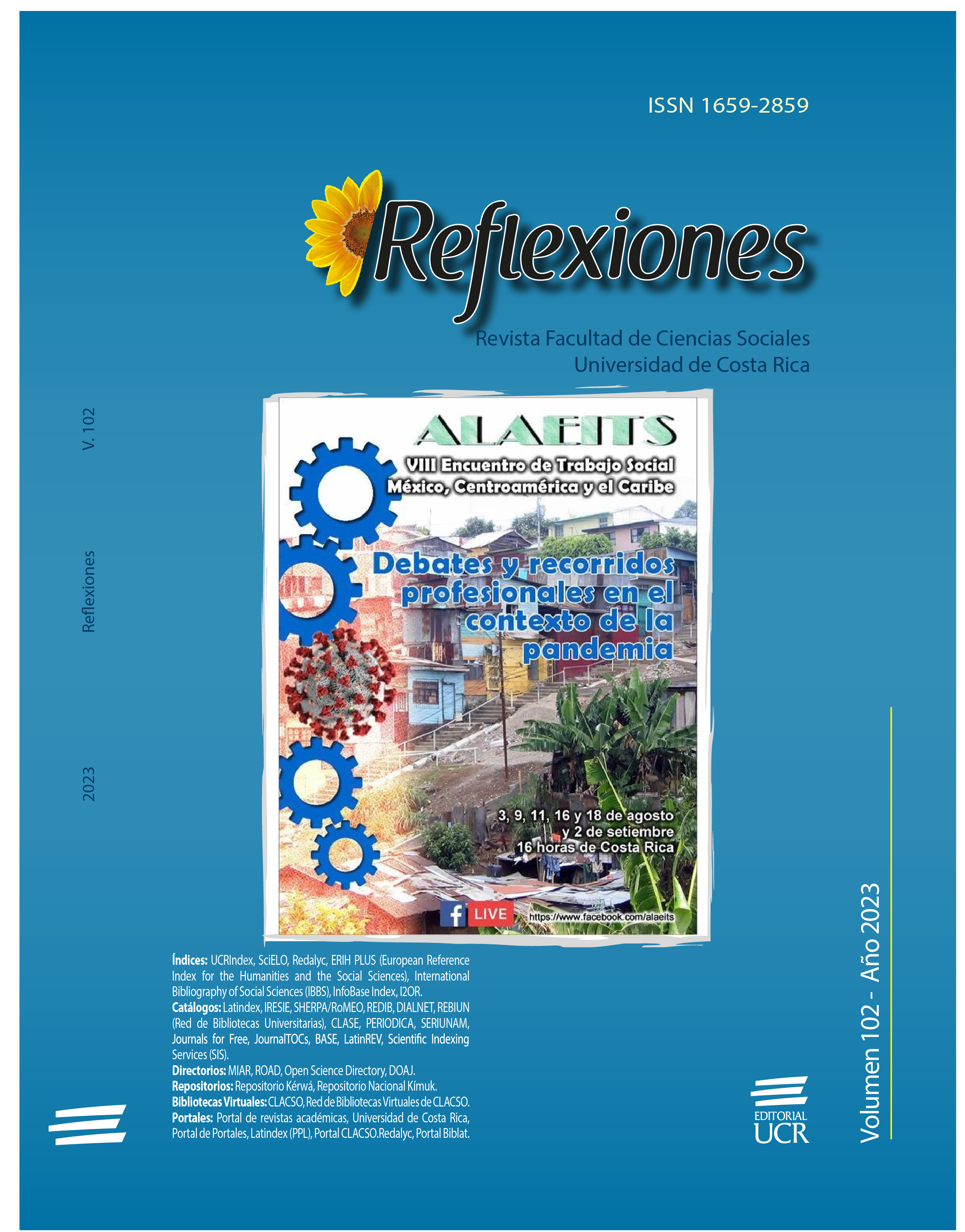Resumen
Introducción: El capitalismo como modo de producción imperante a nivel planetario viene reconfigurándose y, desde hace varias décadas exhibe nuevos patrones en su funcionamiento que impactan todas las esferas de la vida en sociedad, entre ellas la educación. La humanidad atraviesa por un momento histórico en el que la sociedad fue convertida en un gran mercado y la educación superior pública pasó a ser tratada como «mercancía».
Objetivos: Demostrar que, en el actual momento de evolución del sistema capitalista, la educación superior está siendo disputada, para convertirla en un instrumento más al servicio del capital.
Método y Técnicas: Con perspectiva latinoamericana, y utilizando el método histórico crítico de base marxista, el artículo recurre a la revisión bibliográfica para abordar diferentes macro-estrategias que están impactando la Educación Superior Pública en la Región y en el contexto costarricense.
Resultados: La educación superior hoy está siendo transfigurada para que deje de ser un bien público, un derecho social y universal y se convierta en un servicio mercantil más.
Conclusiones: Constantes luchas por presupuestos estatales; un explosivo crecimiento de instituciones del sector privado; sistemas de acreditación que apuntan no solo a desdibujar las diferencias y tensiones entre sector público y el sector privado, sino también a impulsar procesos de internacionalización y la transnacionalización de la educación superior a nivel Regional y mundial; lesiones a la autonomía universitaria; así como modificaciones en las condiciones laborales del trabajo académico; son parte de las tendencias contemporáneas que atentan contra la Universidad Pública Latinoamericana.
Citas
Antonio, Simón y Vivar, Verónica. 2022. «La crisis actual de USAC y la defensa de la educación pública superior», acceso el 9 de abril 2023, https://americacentral.fes.de/actual/la-crisis-actual-de-usac-y-la-defensa-de-la-educacion-publica-superior#:~:text=Ahora%20vamos%20a%20la%20actualidad,cortes%20del%20sistema%20de%20justicia
Baudrit, Luis. 2005. «Repensar la Autonomía de la Universidad de Costa Rica», acceso el 4 de abril 2023, http://www.ucr.ac.cr/medios/documentos/2011/Repensar_la_autonomia_universitaria_Luis_Baudrit_2005.doc
Cea, Maryelos. 2021. «Teletrabajo aumentó 40% en América Latina durante la pandemia», La Nación, 12 de septiembre. https://www.nacion.com/el-mundo/interes-humano/teletrabajo-aumento-40-en-america-latina-durante/WRUY5DO6KVHXXJFX4SFNEOFTZQ/story/
CEPAL. 2021. «Panorama Social de América Latina 2020», acceso el 5 de abril 2023, https://www.cepal.org/es/publicaciones/46687-panorama-social-america-latina-2020
Didriksson, Axel. 2008. «Contexto Global y Regional de la Educación Superior en América Latina y el Caribe». En Tendencias de la Educación Superior en América Latina y el Caribe editado por Ana Lucía Gazzola y Axel Didriksson, 21-54. Caracas, Venezuela: IESALC-UNESCO.
McClintock, Matt. 2018. «Tendencias de los mercados emergentes: Fuerza de trabajo líquida», acceso el 2 de abril 2023 https://www.processmaker.com/es/blog/emerging-market-trends-liquid-workforce/
Meoño Molina, Rita Andrea. «Educación Superior Pública en Costa Rica: rompiendo el límite del debate». Tesis doctoral, Universidade do Estado do Rio de Janeiro, 2012a. https://www.bdtd.uerj.br:8443/handle/1/15916
— 2012b. «Autonomía Universitaria: Conquista en permanente disputa», acceso el 4 de abril 2023 https://www.ucr.ac.cr/medios/documentos/2012/Conferencia-escrita-AU-Conquista-en-permanente-disputa.pdf
Mészáros, István. 2005. A educação para além do capital. São Paulo, Brasil: Boitempo Editorial.
Observatorio Legislativo Argentino. 2021. «Uberización, la nueva modalidad de precarización laboral», acceso el 31 de marzo 2023 https://olegisar.org/uberizacion-la-nueva-modalidad-de-precarizacion-laboral/
Organización de las Naciones Unidas. 2022a. «El desempleo en América Latina bajará en 2022, aunque seguirá más alto que antes de la pandemia», acceso el 3 de abril 2023, https://news.un.org/es/story/2022/01/1502672
— 2022b. «La pandemia frenará la economía durante los dos próximos años, prevé el Banco Mundial», acceso el 3 de abril 2023, https://news.un.org/es/story/2022/01/1502402
Organización Internacional del Trabajo. 2020. «El teletrabajo durante la pandemia de COVID-19 y después de ella. Guía práctica», acceso el 7 de abril 2023, https://www.ilo.org/wcmsp5/groups/public/---ed_protect/---protrav/---travail/documents/publication/wcms_758007.pdf
— 2022. «Informe de referencia de la OIT. Perspectivas Sociales y del Empleo en el Mundo. Tendencias 2022», acceso el 4 de abril 2023, https://www.ilo.org/wcmsp5/groups/public/---dgreports/---dcomm/---publ/documents/publication/wcms_834068.pdf
— 2023. «Informalidad y pobreza laboral lastran a mercados de trabajo en América Latina y el Caribe», acceso el 1 de abril 2023, https://www.ilo.org/americas/sala-de-prensa/WCMS_867505/lang--es/index.htm
Ponce, Aníbal. 2007. Educação e luta de classes. São Paulo, Brasil: Cortez.
Programa Estado de la Nación. 2008. Segundo Informe Estado de la Educación. San José, Costa Rica: PEN
Vargas, José Ángel. 2022. «Nuevo liderazgo en el Conare: A propósito del Acuerdo FEES 2023». Semanario Universidad, 12 de octubre. https://semanariouniversidad.com/opinion/a-proposito-del-acuerdo-fees-2023/#:~:text=El%20Acuerdo%20de%20la%20Comisión,potenciar%20el%20acervo%20histórico%2C%20el
##plugins.facebook.comentarios##

Esta obra está bajo una licencia internacional Creative Commons Atribución-NoComercial-CompartirIgual 4.0.
Derechos de autor 2023 Rita Meoño Molina

